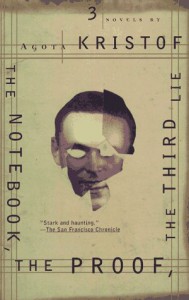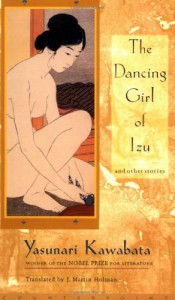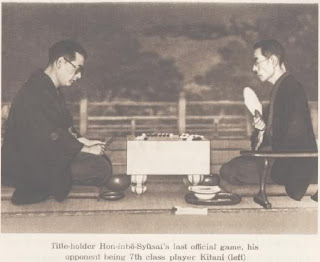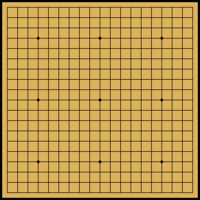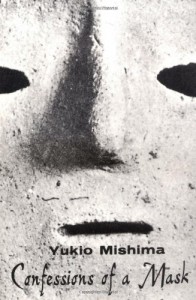Big Breasts & Wide Hips - Mo Yan

Is the uterus a prime property of the dowry that a bride brings into her marital life? Fertility being its most significant asset and a son the ultimate gift of that property.
“Without a son, you’ll be no better than a slave as long as you live, but with one you’ll be a mistress…..”
The cry of a barren womb is more traumatizing than the agony of twisted bones that sacrifice their maturity for the birth of exquisite Lotus Feet. A society, where once a woman without bound feet could not find a husband and a mother who could not birth a son would become a slave and not a mistress of the house was indeed a disgraceful place to exist. A patriarchal society that prides in its honorable men becomes a farce when these very men abuse the owner of the precious womb that have birthed these men and have constructed the very reality of patriarchy. Shangguan Lu was tormented for her barren womb. In the conundrum of physical and mental abuse where tears forget their existence and misery becomes a friend, the fight against patriarchal sterility intensifies, compelling the womb to defend its owner’s survival. When a prosperous harvest becomes essential rather than the origin of its seed and bearing of a son overshadows the essence of survival as it crumbles in the ashes of dignity and ignominy , on that very day a fertile womb stops being a "child-rearing bag" of contentment and becomes a ferocious weapon of survival. Shangguan Lu, survived the war between sterility and fertility, but peace and happiness eluded her and her children. Is it then a punishable offense to be born as a woman in a patriarchal society? To the female donkey that collapses under the weight of a stallion in order for its womb to reproduce a well-endowed mule rather than a scrawny, worthless donkey, is then, possessing a womb a misery or heroic? To those women who were ravaged not only by foreigners but also by their countrymen, is then birthing sons a sin or a blessing?
“We all ate God’s twelfth month gruel, mine came through my mother’s breast….”
Breasts turn out to be an indicator of current circumstances. The supply of milk becomes the sole communicator of vitality and hardships. Throughout the book, Mo Yan strongly emphasizes on the significance of women’s breasts to the point of subtle fascination and eroticism. It is not surprising though, as Shangguan Jintong , the protagonist and the narrator, is shown to be obsessed with his mother’s breasts to the point of worshipping it and later on suffering from ‘photism,. Right from infancy, Jintong was possessive about his mother’s breasts, which ultimately led him to only consume only milk as his body refused to ingest other food products. To a man who has not seen anything but brutal abuse, his mother’s breasts was the only place where he found true love and shelter; a sense of belonging. Can a hypothetical conclusion of lengthened studies of Pavlov’s theories be enough to answer the deep reality of Jintong’s demeanor and oedipal fixation that was gifted to him by the inadequacies of a muddled political and religious society? Moving away from Jintong’s manic worship of breasts, Mo Yan depicts breast to be a symbol of both love and lust. A mother’s breasts that fills with fragrant milk is crucial to nurture the young ones, transforming these bodily assets(breasts) into heavenly warmth of motherly love, a warm cocoon that keeps life’s horrendous reality afar. A mother’s selfless love is imprinted through her breasts as she nurses the innocent infants blurring the boundaries of political discrepancies. However, these same breasts become an object of vicious lust and onset of dastard crimes and endless sufferings.
"Yes, I’ve changed,” Mother said, “and yet I’m still the same. Over the years, members of the Shangguan family have died off like stalks of chives, and others have been born to take their place. Where there’s life, death is inevitable. Dying’s easy; it’s living that’s hard. The harder it gets, the stronger the will to live. And the greater the fear of death, the greater the struggle to keep on living..."
North Gaomi Township has been a powerful witness to the changing landscape of mainland-China, throughout the 20th century. Mo Yan artistically scripts the journey of a mother from the feudal times to a modern society where it becomes essential to listen to the woes of your children. As the conservative land reforms are implemented ,eradicating every existing superstitions and orthodoxy, China undergoes a massive transformation from defeating Japanese Forces (1945) to accepting People’s Republic and bearing the consequences of a vengeful political realignment that encompasses the malicious and inhumane survival during the ‘The Great Leap Forward’ and the ‘Cultural Revolution’. In the fundamental political conflict of a burgeoning country that becomes a laughing stock in the name of liberation and peace, the one firm constant entity in Mo Yan’s political saga is Shangguan Lu – the mother who like numerous other citizens is eluded by peace and joy. Even though the war and personal conflicts flung Shangguan Lu into an ethical quandary, she harbored no prejudices whatsoever with her son-in-laws who excelled professionally as bandits, leaders of Nationalist and Communist party and even the sadistic mute of a demon. Mo Yan interlaces a mother’s or rather a woman’s suffering with the hypocrisy of war.
There are times when the reader is obligated to question the ethical stance of Lu’s pronouncements. In a savage world where the thought finding angels is as delusional as the possibility of unicorns, how could ethics find an iota of survival? Is there something such as a just war? And, if there is, then how would one substantiate the injustice that occurs in the name of a ‘just war’? What happens when lust and suffering are entangled in a muddied mess of irrationality and the sensation of a single morsel of a stale steamed bun warming a parched throat brings blissful illusions dissolving the excruciating agony of a simultaneous rape? In a land where women and children are not the first ones to be evacuated during a war, but the first ones to have a price marked at the marketplace, do then ethics truly weigh more than endurance? The burgeoning hunger that feeds on your soul, the mockery of love, where sex blurs the lines of humane reverence and animalistic angst, the sorrow of existence amongst piles of corpses, nothing becomes “normal” anymore. Nevertheless, the motivation to unearth the precious speck of normalcy from the chaotic existence which makes living worth every oozing laceration becomes heroic. To find a rational survival from an abyss of lunacy becomes gallantry. Mo Yan, through his intricate prose creates heroes out of every solitary living being. He makes the human body the prime symbol of valor. The mind- where silence becomes a powerful salvation; the hands – that kills and get killed; the stomach- who even though ravaged by festering hunger look for a morsel of survival; the eyes- that cry in pain and delight, the mouth – that spew abhorrence and harvest love, the heart- that never stops loving and the womb- the ultimate bearer of all the pandemonium.
“Sima Ku has his faults plenty of them, but he lived his life like a man and that’s worth emulating…”
In a thunderous patriarchal milieu, Shangguan Lu pronouncing only Sima Ku to be truly “a man”; Mo Yan intensely mocks the societal patriarchy depicting other men to be a mere bunch of nincompoops. The courage of the Gaomi women takes centre stage with their strength of mind to survive in the most horrendous circumstances. The glorious penis fails where the big breasts and wide hips succeed; protecting the spirit of continuation. Furthermore, Mo Yan illustrates other political disasters with the precise dose of satire that gets eventful with the fervor of animal breeding , illustrating the recklessness of people in power who rather be busy in breeding various animal species while their own die of hunger and diseases. What is the use of the Women Right’s propaganda when their (women) basic right to live an honorable life is brutally snatched?
“Are women really wonderful thing? May be they are. Yes, women definitely are wonderful things, but when all is said and done, they aren’t really “things”…..”
Women are not things; neither are their wombs some birthing machines. Shangguan Lu was not a ‘thing’ neither were her daughters and granddaughters. In this journey of a mother through the tumultuous period of Chinese history, every child that came from Shangguan Lu’s fertile womb is heroic, every bastard child and abandoned infant that nestled and nurtured among the warm embrace of her full breasts is heroic. For a motherless orphan to survive in a world of anguish and misery and carry the humungous weight of being a sturdy nurturer on her perfect Lotus Feet, Shangguan Lu is nothing less than a hero and a tigress of a mother. Possessing a uterus is certainly not a misery, it is heroic. The womb altruistically births new life without any prejudices. It births loyalists, patriots, traitors, sinners and saints. Mo Yan’s motherland births all these various sons of her soil; some of whom guard her love and some deceive her faith and yet as a loving mother; the Land of North Gaomi Township tenderly embraces her dead daughters and sons when they rest peacefully under the red sorghum stalks.
Mo Yan was criticized for this particular work and in a controversial debate; the validity of his Nobel Prize was questioned. Did Mo Yan rightly deserved to be the recipient of the Nobel Prize or was it is a mere favorable outcome of a political lobbying? To be honest, I really do not care for such detractors or sycophants. Personally, I have always placed Mo Yan’s works on an artistic dais. At a time when facts are altered by the very own who promise the truth, asking a fiction to hoist the flag of honesty , is akin to pleading the dead to be the prime witnesses to a crime that will never be prosecuted.
Mo Yan asserts:-
“If you like, you can skip my other novels, but you must read, ‘Big Breasts and Wide Hips’. In it I wrote about history, war, politics, hunger, religion, love and sex.”
Although it is not entirely accurate, as his other works are quite worthy of a read, I would not challenge a man whose words create heroes from the most unlikely living beings surviving in outlandish circumstances. As an ardent follower of Mr. Yan’s literature, from the time I open his books, sometimes with a smile, sometimes with misty eyes, I eagerly await the willful footsteps of valor as it strides from the dense sways of the sorghum stalks.
 4
4


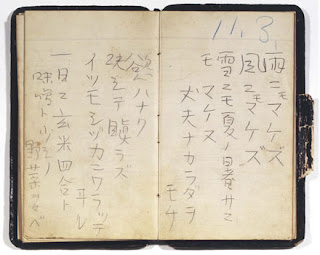

 2
2




